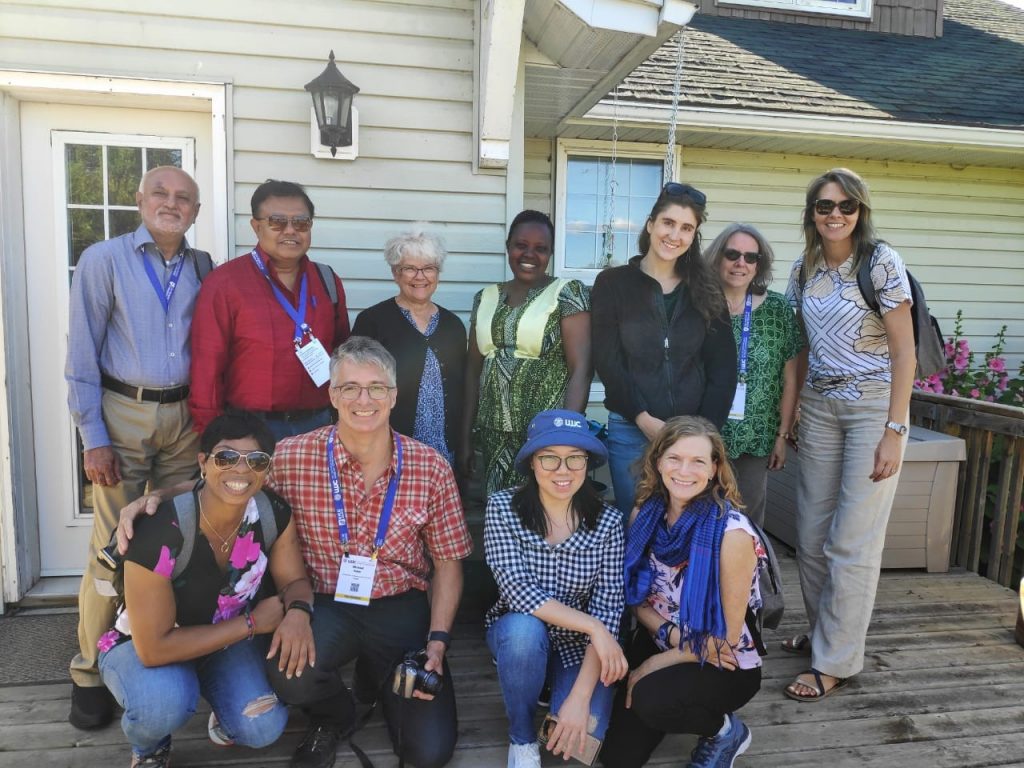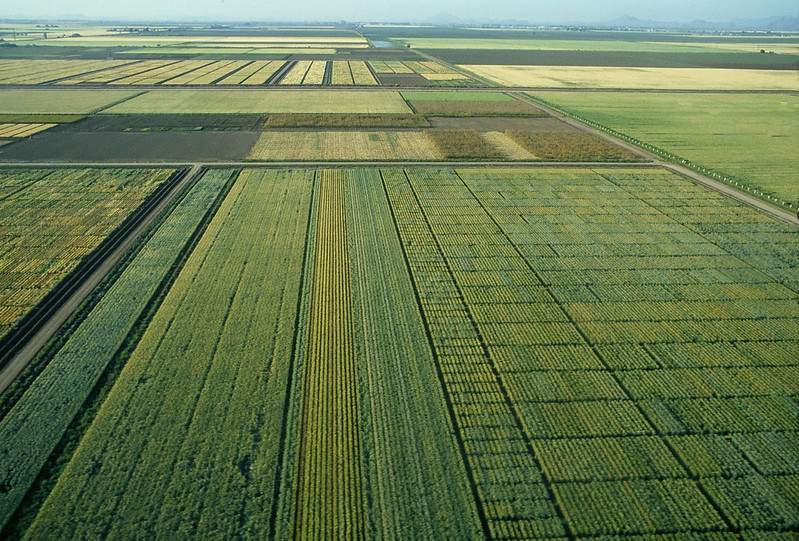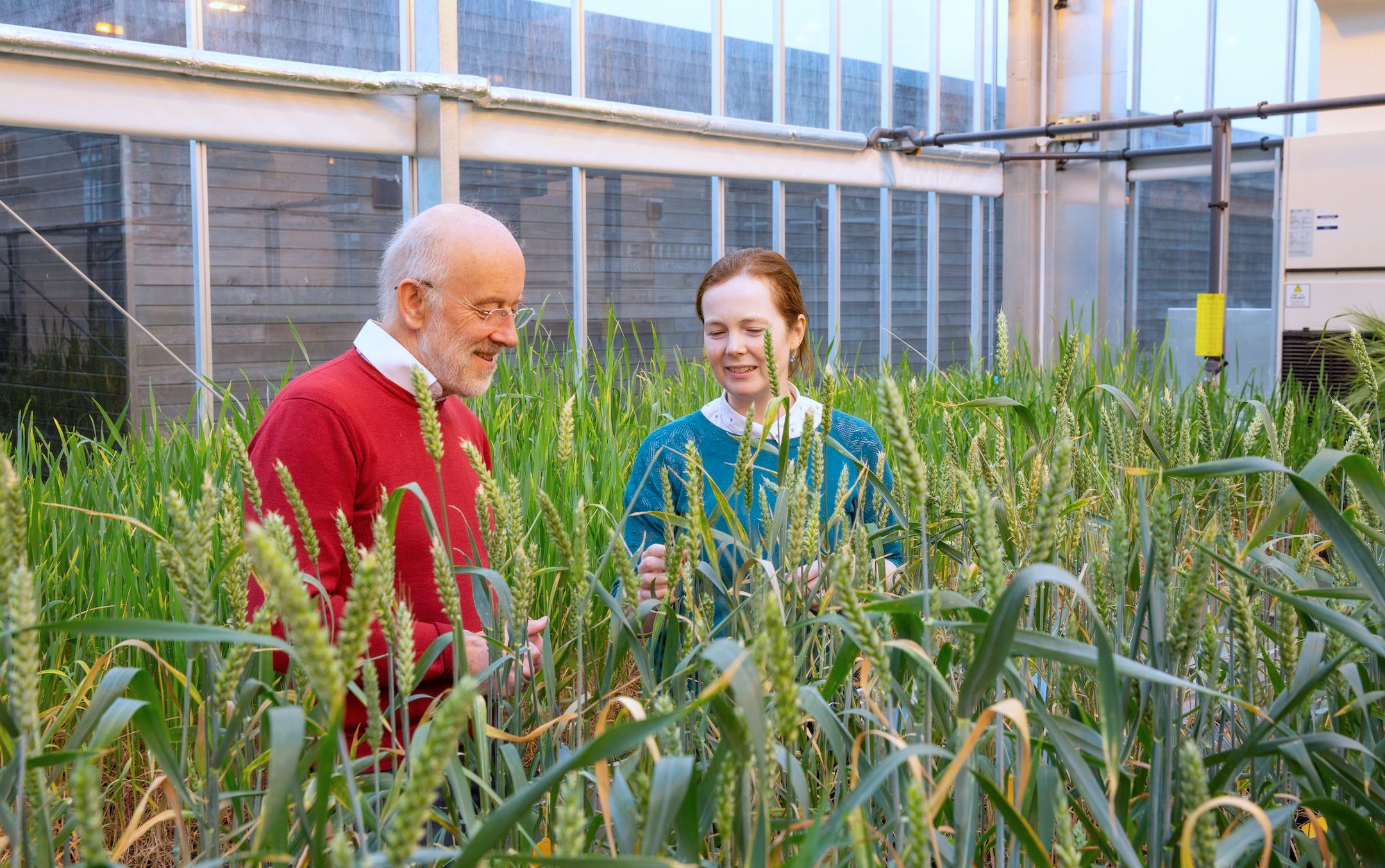The CGIAR Research Program on Wheat (WHEAT) has “a track record of delivering local solutions with a global perspective — and is well positioned to continue this trajectory in the next decade.”
This was a key finding of a recent review of the program aimed to assess WHEAT’s 2017-2019 delivery of quality science and effectiveness, as well as to provide insights and lessons to inform the program’s future.
“Wheat as a crop is bound to be central to global food security in the foreseeable future,” the reviewers stated.
The crop currently contributes 20% of the world population’s calories and protein — and global demand is estimated to increase by 44% between 2005-07 and 2050.
WHEAT — led by the International Maize and Wheat Improvement Center (CIMMYT) with the International Center for Agricultural Research in the Dry Areas (ICARDA) as a key research partner — has two pillars that are essential to meeting this demand: raising potential yield through breeding and closing the yield gap through sustainable intensification at field, farm and landscape scales.
Key recommendations included supporting strategic investment in research partner network development and maintenance and continuing WHEAT’s trajectory towards modernizing breeding processes and integrating sustainable intensification approaches, including mechanization.
The reviewers warned of challenges for the way ahead, pointing out that partnerships — and WHEAT’s reputation as a reliable partner — are vulnerable to funding volatility. The review also raised concerns about the potential fragmentation of the global breeding program, restrictions to the international exchange of germplasm and ideas, “misguided” emphasis on minor crops, and CGIAR’s “focus on process at the expense of results.”
“This review cuts to the core of what’s so critical — and at risk — not only with our program but wheat research in general,” said Hans Braun, director of CIMMYT’s Global Wheat Program and the CGIAR Research Program on Wheat. “Global collaboration and the exchange of improved seeds, data, and especially information.”
“The reviewers rightly point out that limited resources will lead to competition and dampen this collaboration — even between scientists in the same program. We must address this potential risk to improve integration and continue our life saving work,” Braun explained.
“In most of the developing world, the alliance of public sector and CGIAR wheat breeding programs, as well as some national public breeding programs on their own, will remain dominant providers of wheat varieties, until either functioning seed royalty collection systems are established and/or hybrid wheat becomes a reality,” he said.
WHEAT’s strength is its robust global network of research for development partners and scientists linked to global breeding in a ‘wide adaptation’ approach,” said Victor Kommerell, program manager for the CGIAR Research Programs on Maize and Wheat.
“This review underscores that breaking up the breeding program could cause lasting damage to this network,” Kommerell said.
More key findings of the review include:
- WHEAT is effective and well-managed: In 2017-2019, WHEAT mainly achieved its planned outputs and outcomes and in addition achieved unplanned outcomes. For the three years reviewed, WHEAT did not drop any research line.
- WHEAT’s strength is its partnerships: WHEAT has catalyzed a global network of research and development (R&D) that has delivered and continues to deliver a disproportionate wealth of outputs in relation to investment.
- WHEAT creates, and thrives on, collaboration: The predominantly public nature of wheat R&D (In the period 1994-2014, the public sector accounted for 63% of global wheat varietal releases and more than 95% of releases in developing countries) favors collaboration, compared with other industries.
- WHEAT facilitates shared success: The long history of collaboration between CIMMYT, ICARDA and national partners has fostered a sense of belonging to the International Wheat Improvement Network that permits free exchange of information and germplasm, allowing the best varieties to be released, irrespective of origin. International nursery testing delivers elite lines for national program use; data shared by national programs informs WHEAT’s next crossing cycle.
Read more in a 2-page brief summarizing key findings, conclusions and recommendations and on the CGIAR Advisory Services page.
This story was originally posted on the website of the CGIAR Research Program on Wheat (wheat.org).
Cover photo: Wheat trainees and CIMMYT staff examine wheat plants in the field at the experimental station in Toluca, Mexico. (Photo: Alfonso Cortés/CIMMYT)

 Capacity development
Capacity development 


